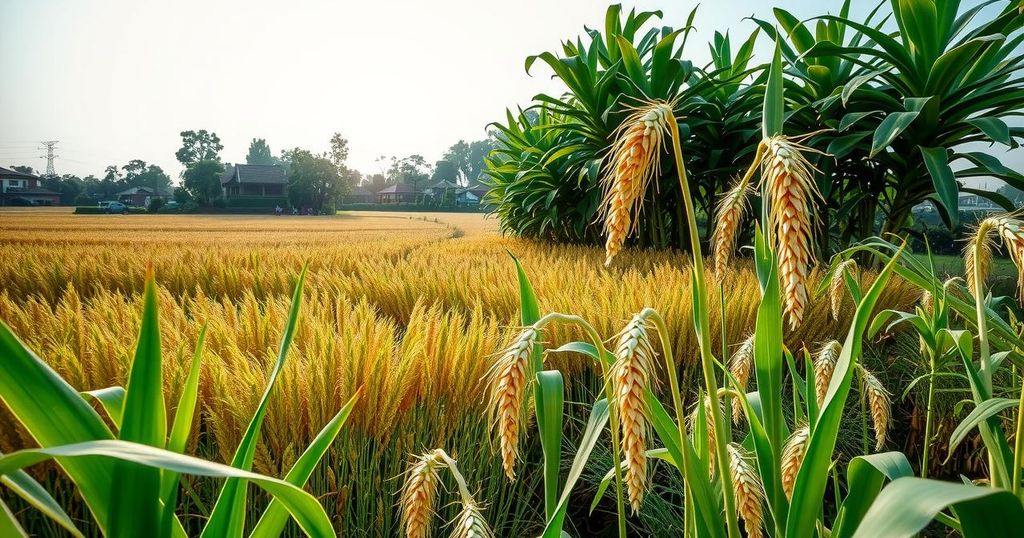ASEAN Food Security: The Equal Necessity of Climate Adaptation and Mitigation

The article emphasizes the need for ASEAN Member States to focus on both climate adaptation and mitigation to address food security. Despite being minor greenhouse gas contributors, AMS face significant climate challenges affecting agriculture. Strategies such as crop diversification and climate-smart agriculture are highlighted as essential for building resilience in response to climate change, with upcoming ASEAN Summits providing an opportunity to prioritize these agendas.
Ensuring food security in Southeast Asia necessitates a dual focus on climate adaptation and mitigation efforts. While the Paris Agreement of 2015 encourages emission reductions to limit temperature spikes, adaptation strategies are equally crucial for safeguarding agriculture in the region, particularly given the recent exceeding of 1.5°C global average temperatures.
Despite ASEAN Member States (AMS) contributing only a small fraction of global emissions, they are significantly affected by climate change. Adverse effects include droughts, flooding, and shifts in weather patterns which compromise agricultural outputs, especially in staple crops like rice and oil palm. As climate impacts intensify, there is a dire need for policies focused on adaptation.
Adaptation measures, such as the diversification of crops towards climate-resilient varieties, are essential. Countries like Laos, Myanmar, and Thailand are exploring alternatives like millet and pulses. However, the persistence of traditional staples complicates the transition to a fully resilient agricultural model, as nations may still rely heavily on rice imports, undermining self-sufficiency efforts.
“Climate-smart agriculture” is another suggested strategy, emphasizing crop varieties with high resilience to extreme weather. However, challenges remain due to limited availability of these seeds and unmet yield expectations. Collective action among AMS can facilitate the development and distribution of such crops to enhance food security effectively.
Enhancing production regions must be balanced with the conservation of vital ecological sites like forests and mangroves. AMS should prioritize intensive farming techniques alongside sustainable practices instead of merely expanding land for agriculture. Furthermore, AMS proposals favoring renewable energy must concentrate on enhancing the efficiency of existing agricultural practices, particularly for smallholder farmers.
The upcoming ASEAN Summits offer a platform for AMS to present robust frameworks for climate adaptation in agriculture as part of a comprehensive approach to food security. Initiatives like the Strategic Plan for Food, Agriculture, and Forestry (2026-2030) and engagements at COP30 are pivotal opportunities for ASEAN to advocate for adaptation alongside mitigation and financial support.
In conclusion, addressing food security in Southeast Asia necessitates an integrated approach that emphasizes both climate adaptation and mitigation. While AMS contribute minimally to global emissions, the significant impacts of climate change on their agricultural sectors require immediate action focused on building resilience. The development of adaptive strategies, alongside the commitment to sustainability demonstrated in upcoming conferences, will be crucial in navigating the complexities of food security in a changing climate.
Original Source: fulcrum.sg






